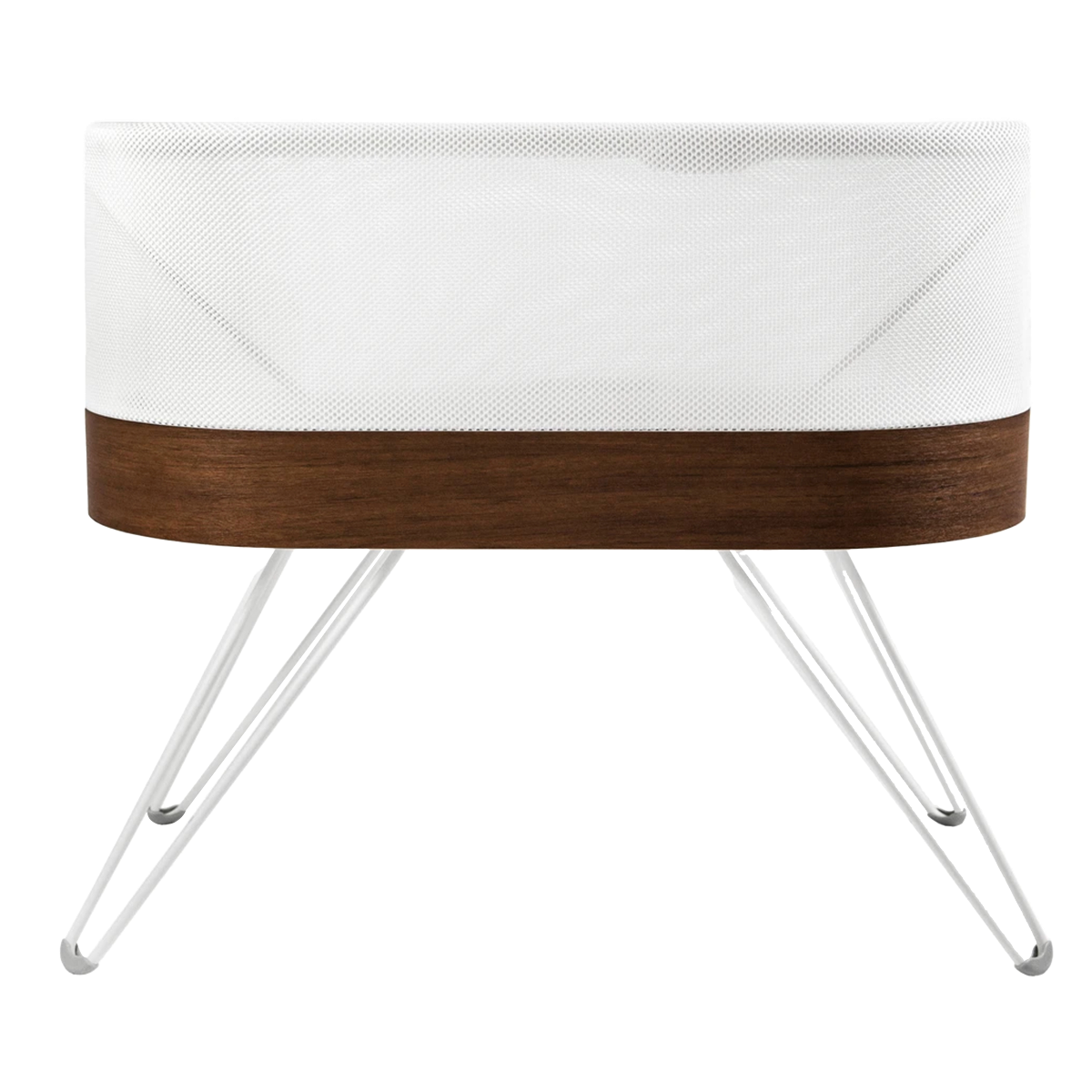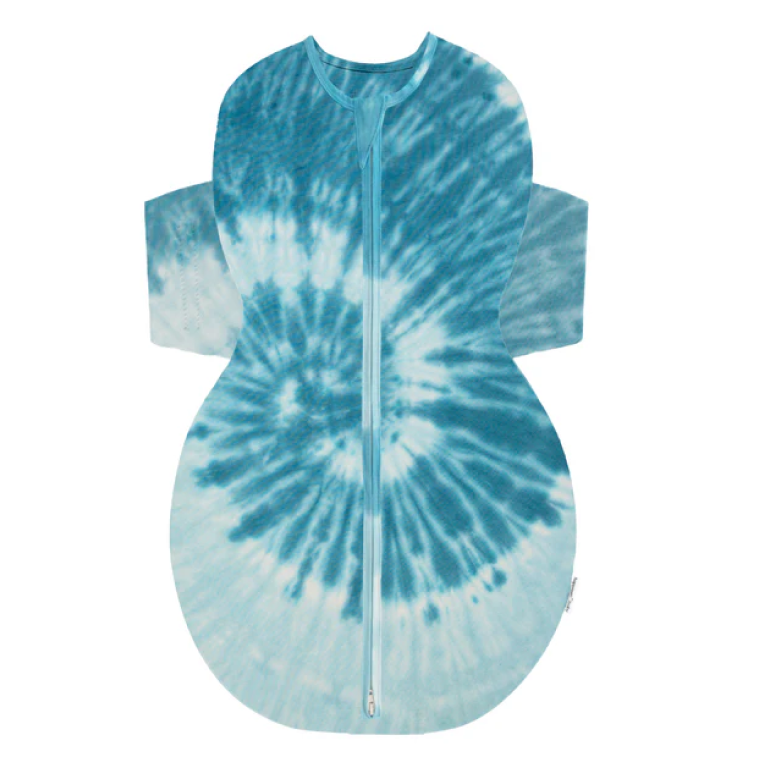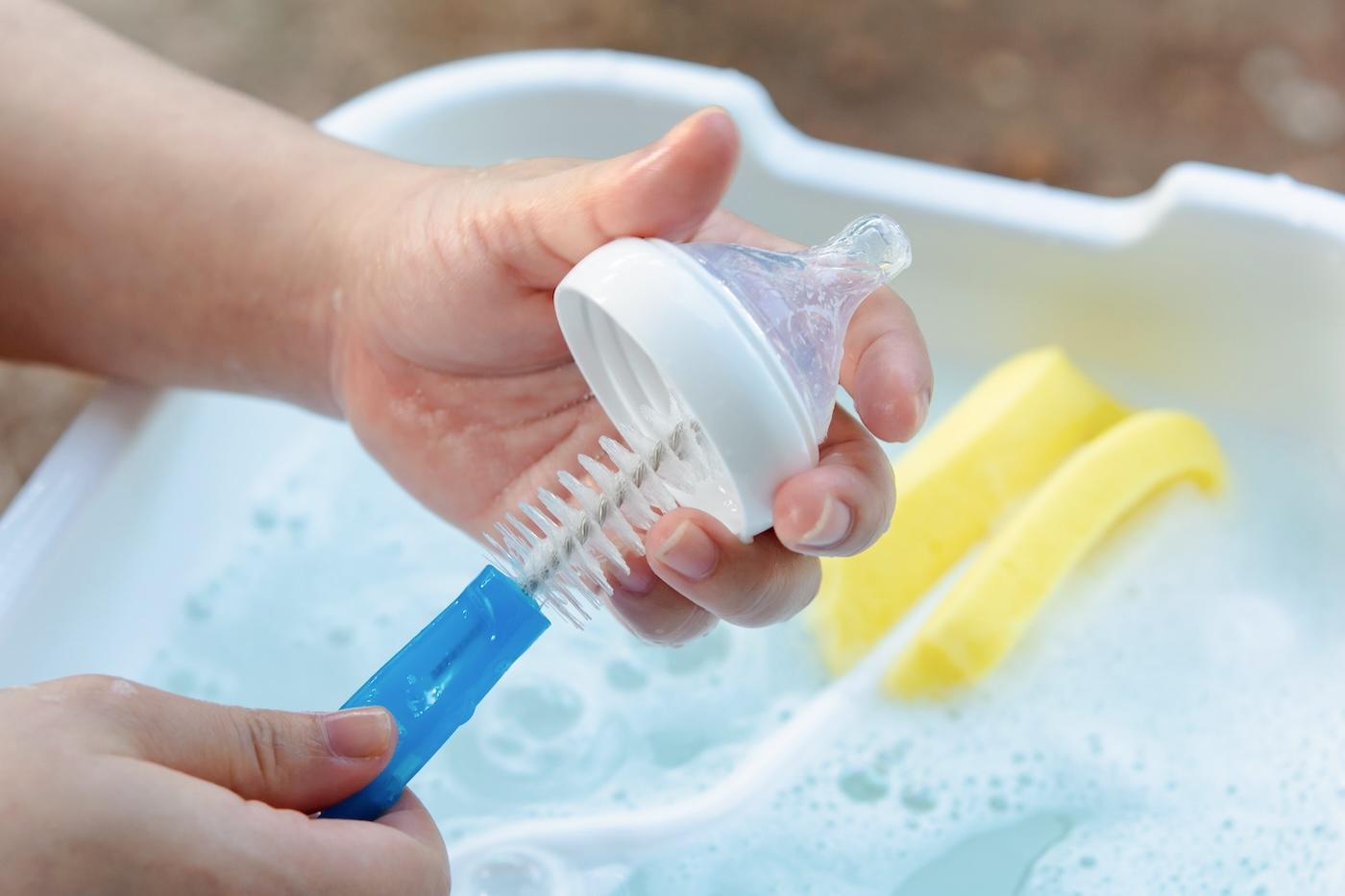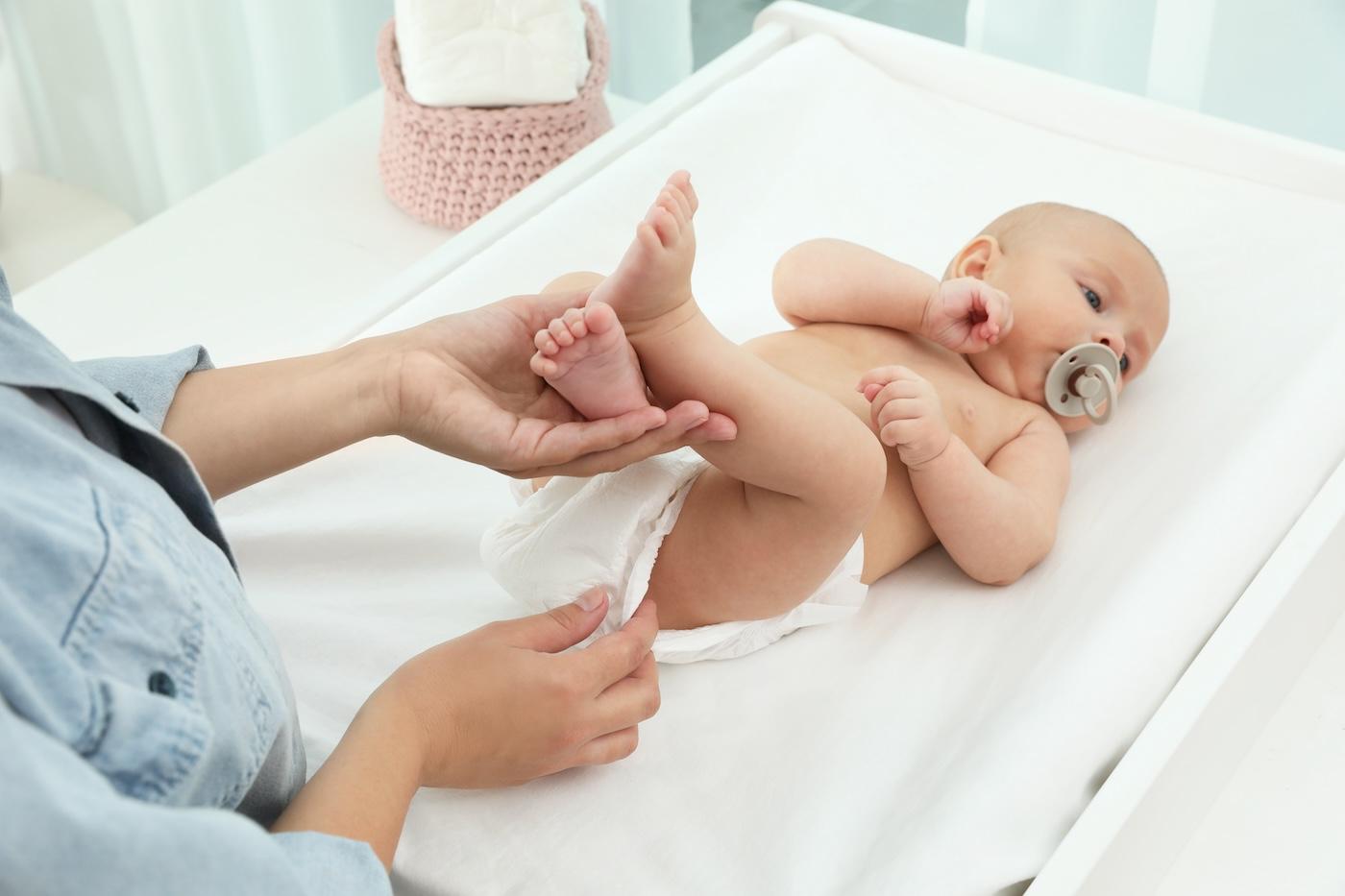BABY
Why Organic Cotton is Better for Babies
While many parents buy organic food for their little ones, they may not be well versed in all the benefits of organic cotton for babies!

Written by
Happiest Baby Staff
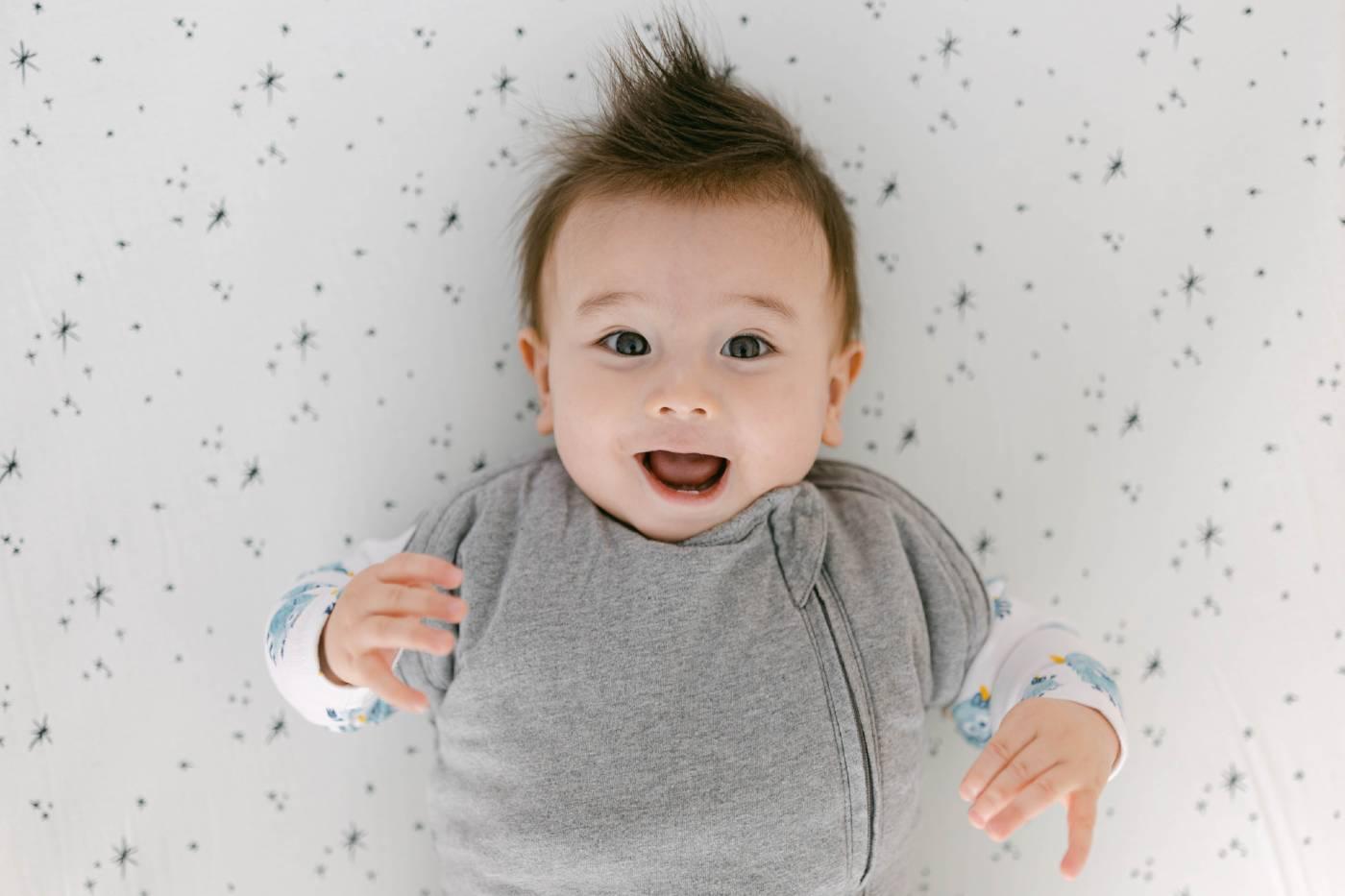
While everyone swoons for an adorable baby romper or a cute-as-can-be bodysuit, there’s way more that goes into dressing a baby than finding the perfect mini OOTD. After all, your baby’s skin is far more delicate and sensitive than grownup skin, which means it’s super important to outfit little ones in the safest, softest clothing around. Enter: Organic cotton. Find out why organic cotton baby clothes, swaddles, and bedding are the way to go!
What is organic cotton?
Just like organic fruits and vegetables, organic cotton is grown without toxic chemicals, harmful pesticides, synthetic fertilizers, or genetic engineering, ensuring a lower impact on the environment and a healthier crop The catch? The National Organic Program (NOP) standards only apply to raw materials, not the soup-to-nuts production—including dyes or fabric treatments—of clothing or soft goods. That means, to ensure your baby’s clothes, sheets, and swaddles are actually organic from field to finish, it’s important to look for the Global Organic Textile Standard (GOTS) label.
What is GOTS-certified organic cotton?
When your bath towels, your sheets, or your baby’s bodysuits are labeled 100% GOTS-certified organic cotton, it means that their entire post-harvesting process—from weaving to dying to manufacturing—meets rigid Global Organic Textile Standard, which is widely recognized as the world’s leading processing standard for textiles made from organic fibers. GOTS is a voluntary standard, which means it’s not regulated by the government. However, GOTS is supported by the United States government, which requires textiles claiming to be organic in the U.S. to be certified by the organic food standard or GOTS.
Here are just some of the reasons to seek baby clothes and soft goods that are GOTS-certified organic:
-
The cotton was grown without hazardous pesticides or synthetic fertilizers. - GOTS-certified organic goods are made of at least 95% organic fibers. (Meanwhile, “GOTS Made with Organic” contains at least 70% certified organic fibers.)
- All dyes are naturally-derived or classified as a safe synthetic.
- GOTS-certified organic goods must hold up to quality washing, shrinking, and color-fading standards.
- GOTS prohibits on-site waste burning and uncontrolled landfilling of waste.
- GOTS goods must be packaged with sustainably certified or recycled paper.
- Products must be produced in a safe, hygienic working environment, free of child labor.
- Folks who produce GOTS-certified organic goods must be given fair wages and have a cap on how many hours they work a week.
What are the benefits of organic cotton for babies?
When a fabric lives up to the GOTS standards, what does that mean for your little one? There are a number of benefits of organic cotton for babies, including…
Organic cotton benefits Baby’s skin.
Organic cotton is a great choice for a baby’s delicate skin, especially little ones with eczema. In fact, the National Eczema Association notes that fabric is the most important aspect to consider when looking for skin-friendly clothing. Their top choice: 100% organic cotton, which is less likely to contain potential allergens and formaldehyde resins, plus 100% organic cotton is soft, breathable, and doesn’t irritate skin as much as other fabric options. That’s really important for infants because they have a higher ratio of skin surface area to body volume and their skin is 30% thinner than a grownup’s skin, making babies more vulnerable to absorbing chemicals.
Organic cotton helps keep babies cool.
Natural fabrics like 100% cotton are super-breathable, which helps to keep baby’s cool and comfortable. Moreover, the Sleep Foundation notes that organic cotton tends to be more breathable than regular cotton—this is key, especially for little ones who aren’t great at regulating their body temperature. A baby’s body temperature rises much faster than yours—and babies and children sweat less, which greatly hinders their ability to cool down. Plus, babies’ sweat glands aren’t yet fully developed, so they’re more likely to get heat rash or prickly heat. That’s why it’s important to dress and swaddle your baby in breathable, organic cotton—and use organic cotton crib and bassinet sheets. (Learn about babies and overheating.)
Organic baby clothes and sheets last longer.
Organic cotton bedding and baby clothes are worth the investment! Experts at the Sleep Foundation note that organic bedding can be more durable than goods made using non-organic materials, blends, or synthetics because organic cotton fibers aren’t damaged and weakened by harsh chemical processing. A 2018 report in the Journal of Consumer Marketing found that the driving force behind consumers buying organic products is the quality “organic” has become synonymous with.
Organic cotton may be healthier.
Back in 1977, the U.S. banned production of chemicals called polychlorinated biphenyls or PCBs because of health worries, including possible rashes, nose and lungs irritation, fatigue, and more. But since PCBs are an unintentional byproduct of manufacturing, these chemicals can leach into certain products…like baby clothes. The good news? Organic baby clothes contain far fewer of these wayward chemicals. A small 2022 study in the journal Environmental Pollution examined 10 infant bodysuits and found that organic cotton bodysuits contained substantially lower levels of PCB than baby clothes made of regular cotton. While researchers note that PCB levels detected did not translate to an important health risk for infants and toddlers, they wrote that health risks should be further assessed down the road.
Organic cotton is better for the environment.
Ordinary, non-organic cotton ranks as the third greatest user of pesticides in the United States and fourth greatest user of pesticides worldwide. Many of the insecticides, fungicides, herbicides, and more used in producing conventional cotton have been associated with a host of both environmental and health issues, according to a 2020 report. On the flip side, no toxic toxic chemicals like pesticides and insecticides are used to farm organic cotton—and far less water. In fact, research shows that organic cotton production practices can reduce water consumption by as much as 91%. At the same time, 40% of organic cotton farmers surveyed reported an increase in beneficial organisms on their farms once they began organic farming. Translation: Organic cotton farming leads to healthier crops
Happiest Baby’s Organic Cotton Baby Products
Dr. Harvey Karp, the renowned pediatrician and sleep expert behind Happiest Baby, of course wants your little one to sleep well and safely…and he wants the world they grow up in to be healthy and safe, too. That’s why you’ll find so many Happiest Baby products are made of GOTS-certified organic cotton, including:
-
Swaddle Blankets: Our award-winning 100% GOTS-certified organic cotton Sleepea 5-Second Swaddle and our Sleepea Comforter Sack take the guesswork out of swaddling with a secure wrap every time…all while being super-soft and breathable! Prefer a more traditional swaddle? Dr. Karp’s OG swaddle is 100% organic cotton muslin. Measuring in at 47-inch square, it’s the perfect size for snug swaddling. - Bedding: All of Happiest Baby's SNOO sheets, no matter the color or design, are 100% organic cotton and perfect for comfy sleep!
- SNOO Sack: Every SNOO comes with free 100% organic cotton SNOO Sacks, plus you can stock up on more of the same in up to 14 fresh colors and patterns—and/or our new Comforter SNOO Sack that’s a touch warmer for extra-cozy sleeps.
You may also be interested in…
- Earth-Friendly Baby Registry Musts
- Simple Ways to Teach Kids About the Environment
- Homemade Baby Food Benefit: Less Exposure to Heavy Metals
- 9 Ways to Reduce Your Child’s Plastic Use
***
REFERENCES
- United States Department of Agriculture, National Organic Program: Policy Memorandum
- Global Organic Textile Standard (GOTS): Key Features
- GOTS: Version 7.0
- GOTS: Why GOTS? How Consumers Benefit From The Global Organic Textile Standard
- National Eczema Association: Sherpas and Shackets and Skiwear, Oh My: Staying Warm, Stylish and Flare-Free This Winter
- Skin Physiology of the Neonate and Infant: Clinical Implications. Advances in Wound Care. October 2015
- Sleep Foundation: Best Organic Sheets
- Vanderbilt University: Child heat stroke is a danger as outside temps rise
- Exploring young consumers’ trust and purchase intention of organic cotton apparel. Journal of Consumer Marketing. November 2018
- Centers For Disease Control and Prevention, Agency for Toxic Substances and Disease Registry: Public Health Statement for PCBs
- Health risk assessment of polychlorinated biphenyls (PCBs) in baby clothes. A preliminary study. Environmental Pollution. May 2022
- Organic cotton production may alleviate the environmental impacts of intensive conventional cotton production. Renewable Agriculture and Food Systems. November 2020
Disclaimer: The information on our site is NOT medical advice for any specific person or condition. It is only meant as general information. If you have any medical questions and concerns about your child or yourself, please contact your health provider.
SHARE THIS ARTICLE
MOST LOVED
Sleepytime Sidekicks






